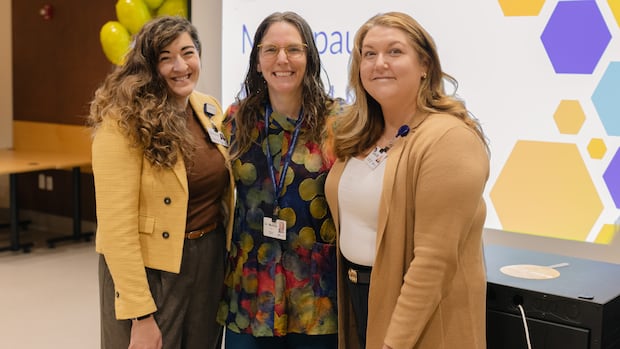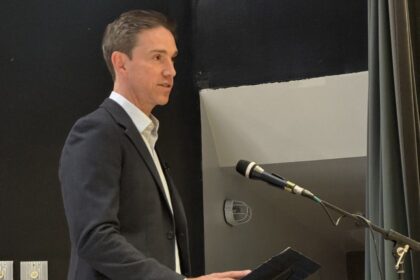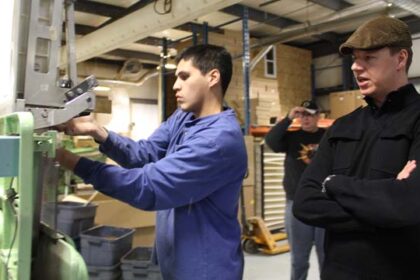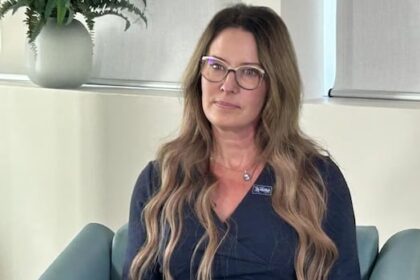New BrunswickHorizon Health Network has joined the Menopause Foundation of Canada’s national Menopause Works Here campaign. Through that, the organization is hosting learning sessions and making sure employees are aware of current benefits that can support them through menopause. Doctor says a quarter of women experience severe menopause symptomsHannah Rudderham · CBC News · Posted: Oct 27, 2025 5:00 AM EDT | Last Updated: 2 hours agoListen to this articleEstimated 3 minutesFrom left, Brittany Stein, regional director of well-being and safety, Dr. Christa Mullaly, and Dana MacDonald, project lead for culture and well-being. Horizon has signed onto a campaign promising a menopause-inclusive workplace. (Horizon Health Network)The medical definition of menopause isn’t necessarily a secret — the stoppage of menstrual periods — but according to Dr. Christa Mullaly, the severity of menopause symptoms for some women is less well-known.That’s one reason why Horizon Health Network has joined a national campaign, pledging to become a menopause-inclusive workplace.“For some women, it’s mild symptoms — things like menstrual periods that come irregularly, occasional sleep disturbance or hot flashes,” said Mullaly, an obstetrician and gynecologist in Fredericton. “But for about a quarter of women, they have really severe symptoms.”Mullaly said these symptoms can include severe sleep interruptions, hot flashes 10 times or more a day and mood disruptions that can increase risk of depression and anxiety. “The sleep, I think, is probably the most disruptive one because sleep is so foundational to our ability to function daily, whether that is at work, in our lives, in our relationships,” she said.Mullaly, an obstetrician and gynecologist in Fredericton, says about a quarter of women have really severe symptoms during menopause. (Helena Nechaeva/Shutterstock)The Menopause Foundation of Canada, which is behind the national Menopause Works Here campaign, released a report in 2023 that said that per year, there is a $3.3 billion loss in income for full-time employees experiencing menopause because of a reduction in hours or pay or from leaving the workforce altogether. We were able to get together in a room at work and feel safe to talk openly about menopause, and that’s something really special- Brittany Stein, regional director of well-being and safety with HorizonThe 2023 report said that five million of Canada’s workers are women aged 40-plus — two million of whom are 45 to 55, the age range when most women reach menopause.Mullaly said that 45 to 55 is also a time when a lot of women are in leadership and mentoring roles.’Not necessarily any one-size-fits-all solution’According to the foundation’s website, the Menopause Works Here program is not an accreditation, but a commitment by a workplace to become menopause inclusive. The program also allows employers access to a free playbook on how to become menopause inclusive.Brittany Stein, Horizon’s regional director of well-being and safety, said the guidebook recommends employers “ground their strategies in listening, learning and taking action — recognizing that there’s not necessarily any one-size-fits-all solution.”“This is not, you know, a checkbox type of initiative that you send out a new policy and you’re done.”She said Horizon’s initial launch includes learning sessions for health-care leadership, taking a look at the existing benefit programs and making sure employees are aware of what services exist for them, such as cognitive behavioral therapy for insomnia. Horizon also had a panel discussion, and Stein said tears were shed that day in the room.“We really were able to gather together to do something that our parents and grandparents generations would not have been able to do,” Stein said. “We were able to get together in a room at work and feel safe to talk openly about menopause, and that’s something really special, and it goes a long way towards breaking stigma, fostering dignity and helping people feel seen and supported, especially in the workplace.”ABOUT THE AUTHORHannah Rudderham is a reporter with CBC New Brunswick. She grew up in Cape Breton, N.S., and moved to Fredericton in 2018. You can send story tips to hannah.rudderham@cbc.ca.With files from Information Morning Fredericton
Horizon joins campaign to support women through menopause at work











